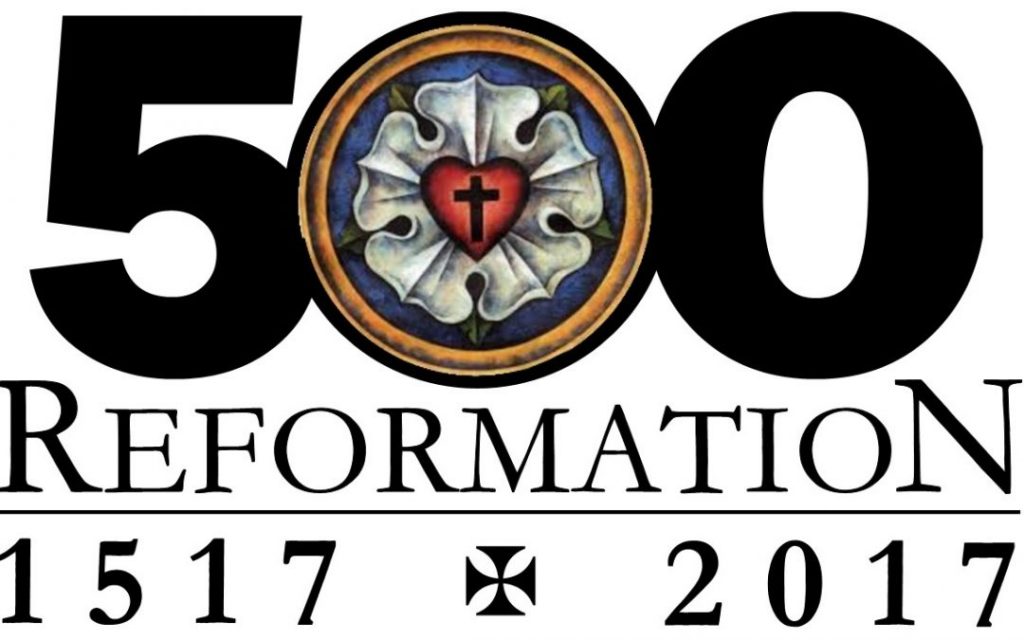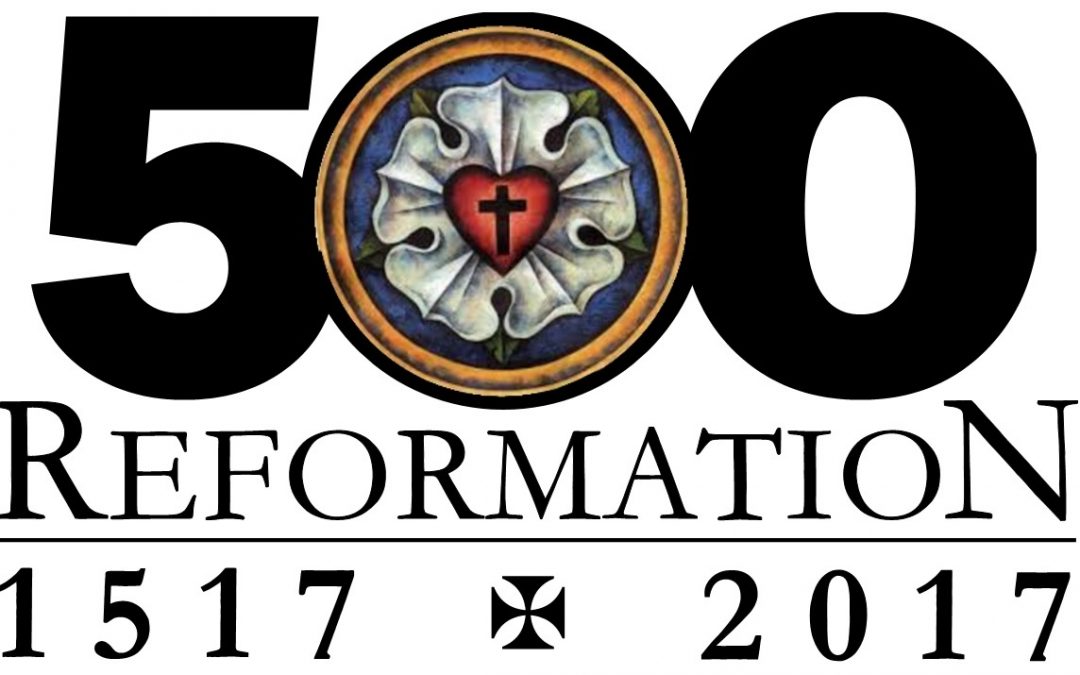
On the 31st of October 1517, a little-known professor of theology sent a letter to his bishop outlining his objections to the sale of indulgences. The indulgences were being sold all over Germany in an attempt to raise money for the rebuilding of St. Peter’s Basilica in Rome. Buying an indulgence made it possible to be forgiven for a sin before one even committed it and the poor were the targets of this sale. Little did this theologian know that his letter would be the spark that lit the fuse of the reform of the church universal.
Martin Luther was the one who wrote the letter, and today we commemorate the anniversary of what has become known as the Protestant Reformation. Luther did not intend to challenge the authority of the church he was asking for an academic discussion to be held on several issues, indulgences being one. The letter he sent to his bishop is what we now call the 95 theses of Martin Luther, and going against conventional belief; he did not nail them to the door of the cathedral instead he sent them in the form of a letter. The nailing to the door bit came much later in history.
But what the reformation calls us to is not so much about what it was against but what it was for. Luther had no intention of starting a new religion or what we now call a denomination, but events would eventually get to a point where a new church was inevitable.
Luther focused on two fundamental points in his theology; salvation was by the grace of God freely given, in other words, there was nothing you could do to earn it. And that everyone, all of humanity, is created on equal footing regardless of your station in life. Keep in mind that at this point in history there was the belief that the ruling class was given its position by God and therefore they were “better” than the poor people. One needed to keep poor people poor to secure their place. If the poor rose up, look out, and the church of the day was complicit in that. For a king to be a king, he was required to pay tribute to Rome and thus he was appointed by God.
Whatever else we want to believe about the Reformation it did not begin with a physical break with a Rome in mind. Luther’s Reformation was a spiritual Reformation just as Jesus spoke about in the Gospel of Matthew we heard read this morning.
The purposes of the words of Jesus are quite evident in this passage but if we return to Matthew 5:17 we find the real goal. Jesus came not to abolish the law but to “fulfill the law,” and that is what he was doing when he summarized the “law” meaning the “Law of Moses” with love God and love your neighbor.
Jesus is quoting from the Shema: “You shall love the Lord your God with all your heart, and with all your soul, and with all your mind.” Deuteronomy 6:5 and he continue with a quote from Leviticus, “You shall love your neighbor as yourself.” Lev. 19:18 these two Scriptures together provide a summary of Jesus’ mission and ministry.
What Jesus is doing here is moving the emphasis away from the externals of the “law” do this and then this will happen, and more towards God. However, one cannot love God without loving what God loves! One cannot love God and oppress or exclude any of God’s creatures – even one’s enemies. If one truly loves God, then they MUST love everyone.
To love God is to love the way God loves, indiscriminately.
To love God is to love what God loves, everything.
Because God is the source of all being and God loves all of God’s creatures.
What Jesus is proposing is a reformation of thought in 1st century Palestine. He is telling people that the Law has been fulfilled in Him and the “new” way if you will, is to focus on how we treat each other. The Jewish ritual law required sacrifice to please God and thus turn God’s anger away from the. The new requirement of love was fulfilled in the Cross of Jesus Christ, and no further sacrifice is needed. Luther was saying the same thing.
The Lutheran Reformation, which was only the start, by the way, launched a new era and a new way of thinking about what it means to be a Christian. Luther wanted people to focus on the internals of their spirituality, love of God, but also needed to be concerned about their neighbor.
I am often asked what one person can do in the face of the world today, well here was one man who wrote a letter that changed the world and is still changing the world. The challenge for us today is what do we do with this idea of the Reformation?
I have mentioned the writing of Phyllis Tickle before and her idea that every 500 years the church goes through a reformation or what she calls a rummage sale. Her basic thesis is this: every 500 years, the Church goes through a rummage sale, and cleans out the old forms of spirituality and replaces it with new ones. This does not mean that previous forms become obsolete or invalid. It merely means they lose pride of place as the dominant form of Christianity. Constantine in the late 4th century, early 5th, the Great Schism of the 11th century, the Reformation in the 16th century, and now the Postmodern era in the 21st century have all been points of reference for these changes.
The challenge has always been how does the new coexist with the old. It usually leads to bloodshed as we have seen throughout history, but it does not have too. The Reformation made people, the ruling class, nervous because they were no longer able to tell people how to live and what was required for salvation. This put their position in jeopardy. Today we are seeing the same pattern emerging. People want an authentic encounter with God, they want to feel the presence that is outside of themselves, and they want to be shown how to get there. They do not want to be told they want to be shown. They want to encounter the holy in other people not be judged by them or excluded by them because they do not fit a particular mold.
The universal truths are still the universal truths how we get there and how we talk about them has and needs to change.
Martin Luther lit the fuse that started a movement that continues today. He called us to focus on what matters about our faith, love of God and love of neighbor. He reminded us that God loves us and forgives us and does this freely because of the sacrifice of Jesus Christ. He told us that we are all created equal no matter if we are popper or prince; we all come into and go out of the world the same way. He reminded us that each person is created in the image and likeness of God and what we have within us a divine spark that needs to be recognized and honored in each human being. This was and is the message of the reformation 500 years ago and today.
In the 1740’s not far from here in Northampton, Massachusetts Jonathan Edwards stepped into the pulpit and began what we now call the Second Great Awakening. He awakened with those who heard him the desire to find God again and in some ways started another reformation, a spiritual reformation. What the world needs more than every today is not a political church, not a judgmental church, not a church that says if you conform to our ways you can come in, but a church, like Luther’s church, that welcomes all for no other reason than God loves us.

